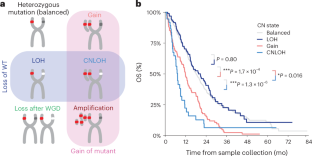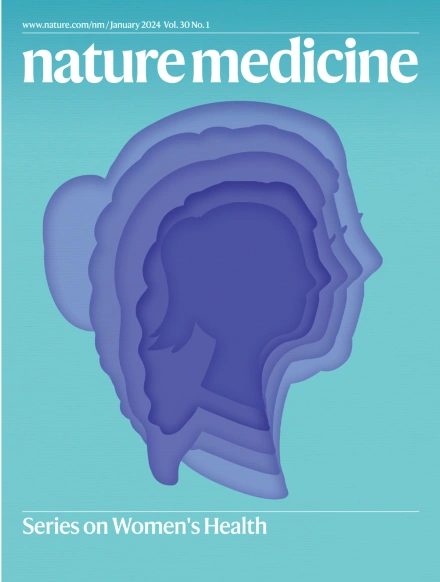并非所有kras突变的胰腺癌都是一样的——突变剂量很重要
IF 58.7
1区 医学
Q1 BIOCHEMISTRY & MOLECULAR BIOLOGY
引用次数: 0
摘要
KRAS突变在胰腺腺癌(pdac)中普遍存在,并与不良预后相关。我们利用2336个PDAC肿瘤的队列来表征基因组亚型及其在临床阶段的预后相关性。一个关键的发现是KRAS突变等位基因的浅拷贝增益是常见的,并且预示着不良的预后。本文章由计算机程序翻译,如有差异,请以英文原文为准。


Not all KRAS-mutated pancreatic cancers are equal — mutant dosage matters
KRAS mutations are ubiquitous in pancreatic adenocarcinomas (PDACs) and are associated with poor outcomes. We leveraged a cohort of 2,336 PDAC tumors to characterize genomic subtypes and their prognostic correlates across clinical stages. A key finding is that shallow copy gains in KRAS mutant alleles are common and indicate unfavorable prognosis.
求助全文
通过发布文献求助,成功后即可免费获取论文全文。
去求助
来源期刊

Nature Medicine
医学-生化与分子生物学
CiteScore
100.90
自引率
0.70%
发文量
525
审稿时长
1 months
期刊介绍:
Nature Medicine is a monthly journal publishing original peer-reviewed research in all areas of medicine. The publication focuses on originality, timeliness, interdisciplinary interest, and the impact on improving human health. In addition to research articles, Nature Medicine also publishes commissioned content such as News, Reviews, and Perspectives. This content aims to provide context for the latest advances in translational and clinical research, reaching a wide audience of M.D. and Ph.D. readers. All editorial decisions for the journal are made by a team of full-time professional editors.
Nature Medicine consider all types of clinical research, including:
-Case-reports and small case series
-Clinical trials, whether phase 1, 2, 3 or 4
-Observational studies
-Meta-analyses
-Biomarker studies
-Public and global health studies
Nature Medicine is also committed to facilitating communication between translational and clinical researchers. As such, we consider “hybrid” studies with preclinical and translational findings reported alongside data from clinical studies.
 求助内容:
求助内容: 应助结果提醒方式:
应助结果提醒方式:


